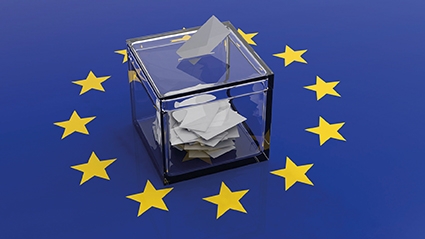European Elections See a Shift in Politics
On 26 May, European elections were held across the 28 European member states to decide on who will sit in Strasburg. The preliminary results released on Monday show a shift in politics as the big center-left and center-right parties have lost their majority, whilst liberals, the greens, and nationalist parties have gained support.
The center-left Social Democrat bloc is expected to lose around 41 seats in the European Parliament, slipping from 191 seats in 2014 to a predicted 150 seats.
The European Party (EPP) is also expected to lost a significant number of seats, falling from 221 to 179, although they will still hold on to their position as the biggest bloc. Both parties will be forced to form a coalition with the Greens or Liberals as they will lose their majority.
The Greens almost doubled their number of votes in the elections with a projected 71 seats compared to 52 in 2014. Northern European countries especially turned to climate-focused parties. In Germany, the Greens took second place with 21% of the votes, behind Angela Merkel’s CDU conservative party.
“This election was above all about the issue of climate and climate protection,” said Annegret Kramp-Karrenbauer, the leader of the CDU. The Greens came third in France, and are predicted to have good results in Belgium and the Netherlands. In Ireland, they won their first two seats since two decades, whilst in Finland and Denmark they also doubled their vote share, securing two seats.
Meanwhile, far-right groups won fewer seats than expected despite strong results in Hungary, Italy, and Poland. Pro-EU parties such as Spain’s socialist party PSOE ensured that far-right parties were unable to take a hold on Strasburg. The Nationalist bloc won 58 seats in total - fewer than predicted.
In the UK, the anti-European party, the Brexit Party, emerged in first place. Formed by former far-right UK Independence Party (UKIP) leader Nigel Farage, the party won approximately 35% of the vote. Despite Farage’s claims that pro-leave parties were the winners, pro-remain parties actually won a bigger share of the vote collectively. With Brexit causing political turmoil in the UK, voters turned away from the Conservative and Labor parties, choosing instead alternative parties such as the Brexit Party, Lib Dems and the Greens.
Despite the increase in votes for alternative parties, the classic centrist parties still attracted the highest number of votes in the elections, securing 505 of 751 seats in Strasburg. The Liberal Democrats were especially successful, for example Emmanuel Macron’s En Marche party in France and the Lib Dems in the UK.
This year’s elections saw a 12% rise in voter turnout compared to in 2014, from 43% to 51%.
As voter turnout has been decreasing ever since the first direct EU vote in 1979, EU officials are pleased at this reverse in trend, especially as the EU is often criticized for its level of democracy.
“Europe wins! Voter turnout very high and pro-European parties are strongest,” tweeted Xavier Bettel, Prime Minister of Luxemburg following the election results. With pro-Europe parties winning the most seats and voter turnout increasing, Europeans have demonstrated their support for the EU over nationalist parties that have been gathering momentum across Europe.
By Amy Jones
Photo source - Sky











